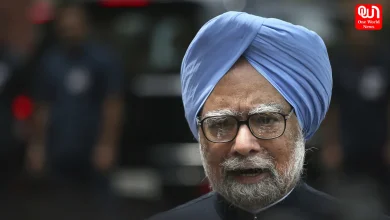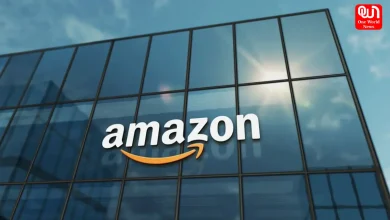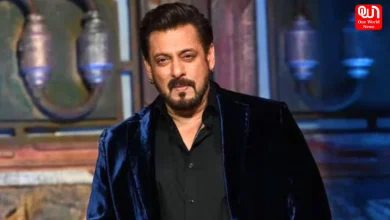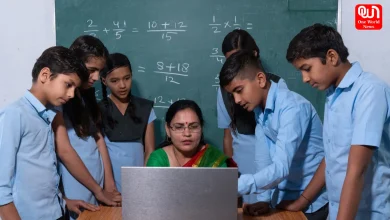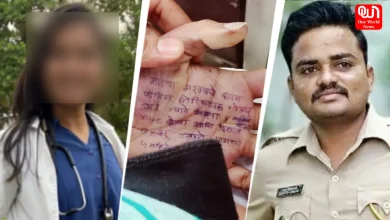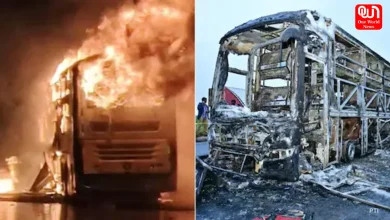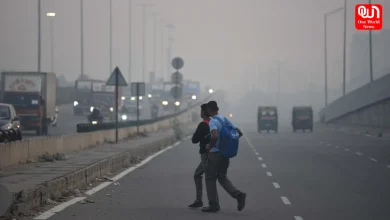Social Media Shaping Indian Politics and Public Discourse
Influential role of Social media shaping Indian politics by changing public opinion, mobilising voters, and transforming the political discourse. Discover how this digital revolution is reshaping democracy in India.
In today’s digital age, social media platforms have become powerful tools that shape public opinion, influence political narratives, and even impact the outcomes of elections. In India, a country with a vast population and diverse political landscape, social media’s impact on politics has been profound. From mobilising voters to providing a platform for political expression social media shaping Indian politics and the way it operates.
Yashwant Sinha writes: Delhi ordinance goes against BJP’s own position | The Indian Express https://t.co/DePpVKNW3g
— Arvind Kejriwal (@ArvindKejriwal) July 9, 2023
Social media platforms such as Facebook, Twitter, and WhatsApp have emerged as virtual battlegrounds for politicians, parties, and citizens to engage in political discourses. These platforms offer a level playing field, enabling individuals to express their views, share information, and participate in discussions on political issues. This democratisation of political discourse has given a voice to the common citizen, empowering them to hold politicians accountable and demand transparency.
One of the most significant impacts of social media on Indian politics is its ability to mobilise voters. Political parties and candidates have recognized the potential of social media as a campaign tool, using it to reach a vast audience, especially the youth who are highly active on these platforms. The ability to target specific demographics, tailor messages, and engage directly with voters has revolutionised political campaigning. Social media has made politics more accessible and participatory, inspiring greater political engagement among the electorate.
Moreover, social media has played a crucial role in shaping public opinion and influencing voter behaviour. News spreads rapidly through social media platforms, and citizens can access information from a variety of sources. However, this has also given rise to the spread of misinformation and fake news, which can sway public opinion and disrupt the democratic process. The challenge lies in promoting media literacy and critical thinking to help citizens navigate the sea of information available on social media.
To Know More ;- Know the connection between Finger painting and mental health
BRS rule in Telangana is a story of unfulfilled promises. pic.twitter.com/7Y8XVKtcqN
— Narendra Modi (@narendramodi) July 8, 2023
In addition to mobilising voters and shaping public opinion, social media has transformed the way political parties communicate with the electorate. It has become an essential component of their communication strategies, enabling them to disseminate their ideologies, policy positions, and campaign updates directly to the public. This direct engagement with voters has also made politicians more accessible, bridging the gap between the political class and the citizens they represent.
Delhi is the best… https://t.co/70Gz64JF2r
— Arvind Kejriwal (@ArvindKejriwal) July 4, 2023
Social media has also empowered citizens to organise and participate in political movements and protests. The Arab Spring, Occupy Wall Street, and the recent farmer protests in India are prime examples of how social media can galvanise people and amplify their voices. Activists and citizens can quickly spread their message, coordinate actions, and mobilise support, transcending geographical boundaries. This has forced politicians to take notice and respond to the demands of the people, making governance more responsive and accountable.
भाजपा राज में आदिवासी भाइयों और बहनों पर अत्याचार बढ़ते ही जा रहे हैं।
मध्यप्रदेश में एक भाजपा नेता के अमानवीय अपराध से सारी इंसानियत शर्मसार हुई है।
यह भाजपा का आदिवासियों और दलितों के प्रति नफ़रत का घिनौना चेहरा और असली चरित्र है!
— Rahul Gandhi (@RahulGandhi) July 5, 2023
However, social media’s impact on Indian politics is not without its challenges. The spread of misinformation and fake news can manipulate public opinion and fuel polarisation. Moreover, social media algorithms tend to create echo chambers, reinforcing existing beliefs and limiting exposure to diverse perspectives. This can lead to the formation of ideological bubbles and hinder constructive dialogue and compromise.
Read more:- Social Media Shaping Indian Politics
राजस्थान की कांग्रेस सरकार ने अपने पूरे कार्यकाल को आपसी खींचतान और लड़ाई में ही बर्बाद कर दिया। राज्य को अब ऐसी सरकार चाहिए, जिसका फोकस विकास पर हो। pic.twitter.com/QM8K7rkFMJ
— Narendra Modi (@narendramodi) July 9, 2023
To address these challenges, there is a need for a comprehensive regulatory framework that ensures the responsible use of social media while safeguarding freedom of expression. Media literacy programs and fact-checking initiatives can also play a vital role in promoting critical thinking and countering misinformation.
Liked this post?
Register at One World News to never miss out on videos, celeb interviews, and best reads.


